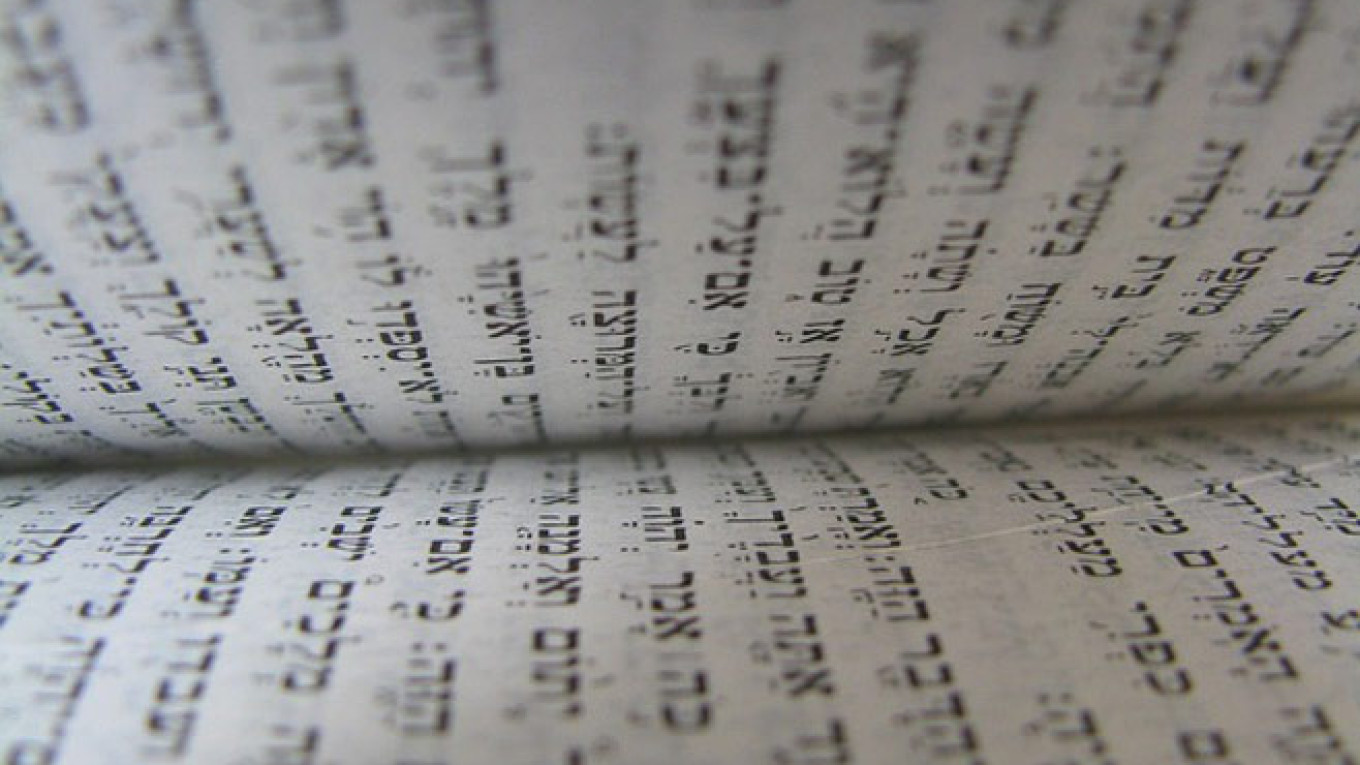It has been a week of ups and downs for religious freedom in Russia, with a Jewish school having become the target of an extremism investigation, and the beleaguered Jehovah's Witnesses having gained an improbable boost at the Justice Ministry's hand.
Prosecutors in the city of Yekaterinburg have removed religious textbooks from a local Jewish school to review their contents for traces of extremism, the Politsovet news site reported Monday.
The administration of Yekaterinburg's Ohr Avner Jewish school was told that a cultural-linguistic examination would be carried out on textbooks about sacred religious texts such as the Torah, to determine whether they contained extremist materials, according to Politsovet.
This is not the first time the Ohr Avner school has ended up in hot water with the Russian authorities. The school faced closure last year after an inspection by federal government agencies found several violations, ranging from its alleged non-compliance with the national curriculum to poor sanitary conditions, local media reported. Authorities have also complained that the school owes more than 40 million rubles ($751,000 at the current exchange rate) in back rent. The school's administration maintains that it has the right to occupy the premise free of charge.
The Ohr Avner school was not available for comment on the latest scandal when contacted Monday afternoon.
Meanwhile, the Justice Ministry has officially registered Moscow's branch of the Jehovah's Witnesses as a religious organization.
The Justice Ministry's decision, which the organization announced Tuesday, represents a rare legal victory.
According to the press service of the Jehovah's Witnesses of Russia, the religious group was banned in 2004 by a Moscow court. It was accused of recruiting children, prompting believers to abandon their families, inciting suicide and preventing followers from accepting medical treatment, news agency RAPSI reported at the time. The European Court of Human Rights found the Moscow court's decision unjustified in 2010, and ruled that it should be overturned.
The much maligned Jehovah's Witnesses have made many headlines over the years for the legal troubles they have faced in Russia.
As recently as March of this year, a court in the Krasnodar region denounced the group's local branch as extremist, ordering the confiscation of their property in the area. And in December of last year, the Supreme Court ruled that a Jehovah's Witnesses website and three of the movement's religious texts are extremist.
A Message from The Moscow Times:
Dear readers,
We are facing unprecedented challenges. Russia's Prosecutor General's Office has designated The Moscow Times as an "undesirable" organization, criminalizing our work and putting our staff at risk of prosecution. This follows our earlier unjust labeling as a "foreign agent."
These actions are direct attempts to silence independent journalism in Russia. The authorities claim our work "discredits the decisions of the Russian leadership." We see things differently: we strive to provide accurate, unbiased reporting on Russia.
We, the journalists of The Moscow Times, refuse to be silenced. But to continue our work, we need your help.
Your support, no matter how small, makes a world of difference. If you can, please support us monthly starting from just $2. It's quick to set up, and every contribution makes a significant impact.
By supporting The Moscow Times, you're defending open, independent journalism in the face of repression. Thank you for standing with us.
Remind me later.


